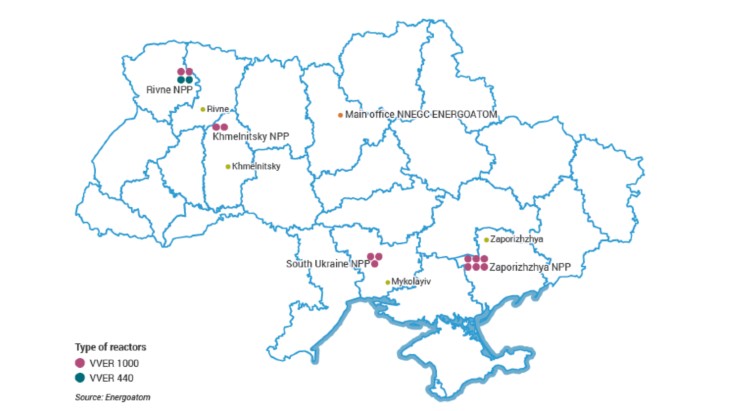Ukraine’s largest nuclear power plant, Zaporizhzhia, which is on the front line of the conflict and has been forced to rely on its emergency diesel generators on a number of occasions when it has lost external power supplies. This is the first time that other operating nuclear power plants in Ukraine are known to have had such issues.
IAEA Director General Rafael Mariano Grossi, said: "This was a very concerning development. It shows the potential nuclear safety and security risks facing all of Ukraine’s nuclear facilities during this terrible war, not just the Zaporizhzhia nuclear power plant. While off-site power is now back at the Khmelnitsky nuclear power plant, yesterday’s power loss clearly demonstrates that the nuclear safety and security situation in Ukraine can suddenly take a turn for the worse, increasing the risk of a nuclear emergency."
Khmelnitsky lost its grid connection at 18:35 local time on 15 November after its four operating power lines were taken out of operation by missile strikes over a two and a half hour period, according to reports submitted by Ukrainian authorities to the IAEA. The two reactors at the plant were shut down, with the diesel generators only able to be switched off at 03:45 local time on 16 November when power supplies were restored via two 330 kV back-up power lines. According to the latest status report on the morning of 17 November from Energoatom, it was operating as usual at 09:00 local time.

Rivne also lost connection to one of its 750 kV lines on the afternoon of 15 November and one of its four units was automatically disconnected.
Earlier this week the IAEA announced it would be sending experts to the three operating nuclear power plants in Ukraine, plus Chernobyl. It already has a permanent team based at Zaporizhzhia plant, which has been under the control of the Russian military since early March.
Grossi said: "We will be at these nuclear power plants in the near future as part of our steadfast assistance to Ukraine in its efforts to maintain nuclear safety and security and prevent a nuclear accident during the conflict."
Nuclear power plants need power for essential cooling and safety functions, even if in shutdown and not producing electricity. Emergency diesel generators have an important role to play but they are not intended to be used for extended periods of time.

.jpg)



_87299.jpg)
_52351.jpg)








